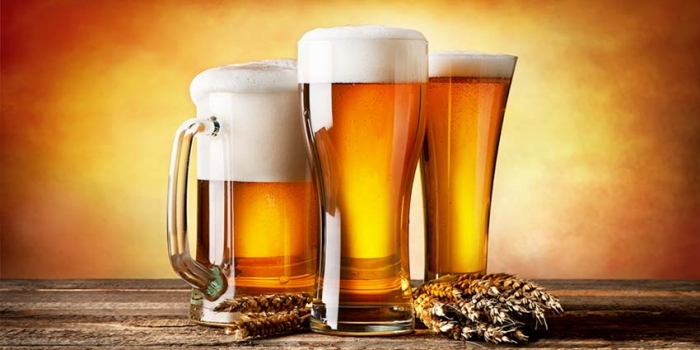A new study, published in Nature Plants, highlights that extreme weather conditions, such as droughts and heat waves, in conjunction with global warming, will cause "sharp declines" in barley crops, the primary component of beer.
"The world is facing many life-threatening impacts of climate change, so people having to spend a bit more to drink beer may seem trivial by comparison," said co-author Steven Davis, UCI associate professor of Earth system science, in a statement. "But there is definitely a cross-cultural appeal to beer, and not having a cool pint at the end of an increasingly common hot day just adds insult to injury."
In countries like Ireland, where the cost of a brew is already high, prices could rise 193 percent.
The findings come a week after a dire United Nations report described the consequences of dangerous levels of climate change including worsening food and water shortages, heat waves, sea level rise, and disease.
The study's abstract notes that "beer is the most popular alcoholic beverage in the world by volume." Using five economic models, the study shows that the aforementioned extreme events "may cause substantial decreases in barley yields worldwide," with average yield losses ranging between 3 and 17 percent, depending upon how severe the conditions get.
"One of the greatest challenges as a scientist doing research on climate change and food is to illustrate it in a way that people can understand," U.S. Department of Agriculture scientist Lewis Ziska told the Associated Press in an email. Few people would complain if global warming ruined Brussels sprouts, he added.
In various parts of the world, the decreases could be starker than others, such as an estimated 32 percent decline in Argentina. China could also see a drop in consumption and Davis "joked" the U.S. could see a decline in areas such as keg stands and beer pong tournaments, as six packs could rise the equivalent of an extra $20 in Ireland and other countries.
Davis, an IPA fan, is one of those people who care. "This is a paper born of love and fear," he said.
In 2017, U.S. beer sales exceeded $34 billion, according to Brewbound, which cited data from IRI Worldwide. Volume declined 0.4 percent, while dollar sales rose 1.2 percent, led by imports, craft beer and domestic super premiums.
Barley is primarily grown in six parts of the world: the northern Great Plains, Canadian prairies, Europe, Australia and the Asian steppe. To make matters worse, only 17 percent of barley is used for alcoholic consumption – most of it is used as feed for livestock, which poses a huge problem for producers: feed for animals or thirsty humans?
"Current levels of fossil fuel consumption and CO2 pollution - business as usual - will result in this worst-case scenario, with more weather extremes negatively impacting the world's beer basket," co-author Nathan Mueller added in the release. "Our study showed that even modest warming will lead to increases in drought and excessive heat events in barley-growing areas."
If emissions of heat-trapping gases from the burning of coal, oil and gas continue at the current rising pace, the likelihood of weather conditions hurting barley production will increase from about once a decade before 2050 to once every other year by the end of the century.
"Our results show that in the most severe climate events, the supply of beer could decline by about 16 percent in years when droughts and heat waves strike," Davis said. "That's comparable to all beer consumption in the U.S. Future climate and pricing conditions could put beer out of reach for hundreds of millions of people around the world."
More about: #Beer















































